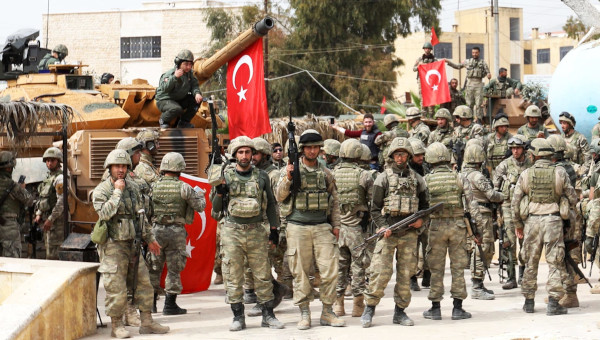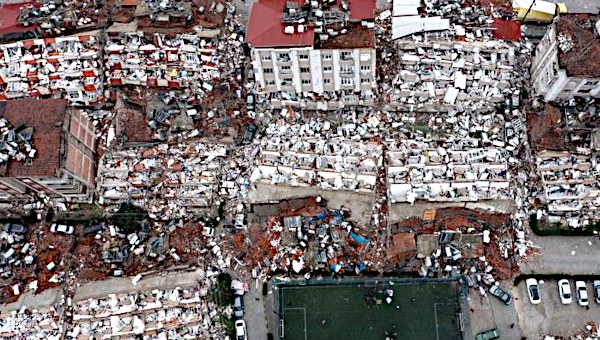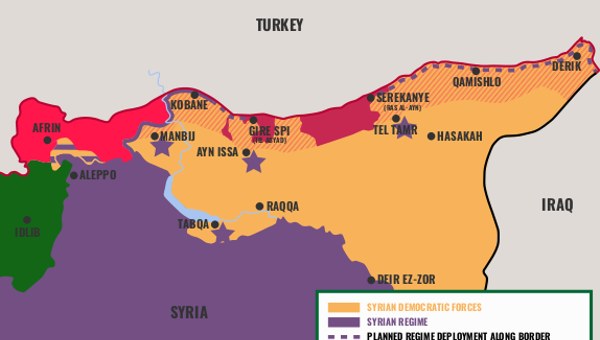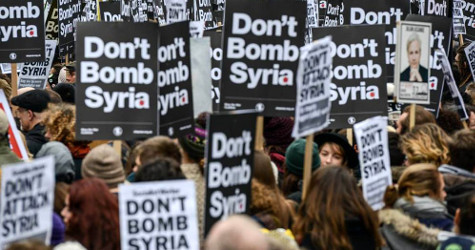Isis chose the beginning of Ramadan to launch an attack on Kobane in an attempt to retake the city liberated by the Kurdish resistance this past January. No sooner was the attack repelled than Turkish president Recep Tayyip Erdogan began brandishing his scimitar and deploying troops and armour to the border with Syrian Kurdistan, threatening to put an end to the project of democratic autonomy that Kurds are building in the three cantons of Rojava.
Below we publish interviews with two commanders of the YPJ given to the Italian leftwing daily Il Manifesto (June 24 and 26), explaining the role and goals of the YPJ. Nesrin Abdullah was interviewed while on a visit to Italy where she met parliamentarians, but also ordinary Italians during various events throughout the country. Commander Rangin was interviewed by telephone in Kobane while combat with Isis was taking place.
Commander Nesrin Abdullah:
The Other Half of Rojava
Giuliana Sgrena
“We are not soldiers, we are militants; we are not paid to make war, we are partisans of revolution. We live with our people, follow a philosophy and have a political project. At the same time we are carrying out a gender struggle against the patriarchal system. Other combatants are our comrades; we have political and friendly relations,” this is how Nesrin Abdullah, commander of the YPJ, explains to me the role of women combatants in Rojava (Syrian Kurdistan) and their relationship with the male People’s Defence Units (YPG).
She is 36 years old, though in appearance looks younger, was born in Dirik in the canton of Jazeera, and is self-confident. Before being involved in the army she was a journalist. She is unmarried, as is demanded of all Kurdish fighters, men and women. From the time civil war erupted in Syria (2011) – and Isis (Islamic State in Iraq and the Levant) attacked Rojava destroying Kobane – Nesrin Abdullah was on the front line, and has become one of the ‘heroines’ celebrated not only in Kurdistan but worldwide.
“At this moment in Kurdistan the role of women is historic, not only for Kurdish women and those in the Middle East but also at the international level. Our struggle aims at the creation of a new society starting with an ecological vision, the respect for nature, and the affirmation of the rights and identity of women. The world today is unstable; there are many threats, among these is terrorism. As women combatants we have a lot of responsibility toward all women.”
Giuliana Sgrena (GS): Women who in the past took part in struggles for the liberation of their countries placed the rights of women in second place, thinking they would be achieved afterwards thanks to their contribution, but it did not turn out so. For you it is not like this…
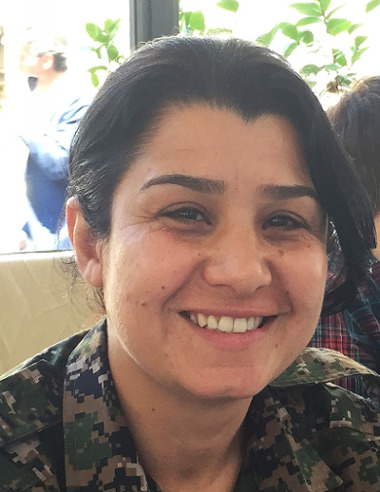
GS: Do you think that women combatants who confront the fanatic terrorists have caused a shock inside Isis?
NA: I think the presence of women among combatants has caused a breakdown in the convictions and maybe in the faith of Isis. They have always fought against armies of men and they also won, but now confronting women must have been a shock because they declared women to be the main enemy. Moreover, they immediately decreed that if a fighter is killed by a woman he cannot enter heaven and his body is burned. When they killed a women fighter they cut off her head and displayed it by the hair like a trophy. This act is the symbol of an ideological defeat for Isis. For us, in contrast, fighting this enemy has become a symbol of identity and has mesmerized and won the attention of Arab, Assyrian, Turkish and German women (among whom there has also been a martyr).
GS: Are there also Italian women?
NA: Italians that I know of no, but there could be.
GS: What is your relationship with the western coalition, in the past these interventions always failed. Do you think that together you will succeed in defeating Isis?
NA: We are fighting for democracy; our door is also open to the coalition if it wants to help us. Up to now they have helped us with bombardments, including heavy ones. We are hoping the assistance will not remain only at the level of bombing.
GS: Do you think a coalition led by the USA is interested in assisting your democratic project?
NA: So far the assistance has only been through bombing, which we well know has not been undertaken for us but to defeat Isis as a mutual enemy. But it must go further: Rojava needs international recognition, we will see if the coalition is willing to also give us diplomatic help. We demand an end to all massacres including to that of our identity.
GS: The first assistance could be to pressure Turkey to put an end to the embargo that prevents the passage of aid for Kurds.
NA: We think that if the coalition wants to, it could create humanitarian corridors. The borders need to be opened for humanitarian purposes, but we also need commercial relations.
GS: Can the success of the HDP (People’s Democratic Party, a party of Kurdish inspiration) in the recent Turkish elections foster a change in the policies of Ankara?
NA: Certainly when a Kurdish party is strong it is an advantage for all Kurds. They are our representatives in Turkey, their victory is our victory. Important also is the fact they elected many women (31 out of 79), this is a terrific message to the Turkish parliament. The success of the HDP could encourage a common policy among the Kurds. We hope in addition that it helps to push Turkey toward a more democratic regime to also foster new relations with Syria. We want autonomy for the three Kurdish cantons, but our country is Syria.
GS: And what will happen in Syria?
NA: Syria has gone the way of a suicide bomber; there is now nothing on which to build. We are ready at the military level to construct a new democratic system but political engagement is necessary. The Syrian opposition does not have a project for the future of Syria and proposals cannot come from abroad; it could follow our example. We are not waiting for the situation in Syria to resolve itself in order to achieve our project for democratic autonomy as part of a democratic Syria. The model proposed from Rojava is popular at the international level because it guarantees everyone can live freely with their culture, identity and religion. We’re fighting solely against Isis and are ready to defend the system we created; we are one pillar of our system.
GS: Yet the charter of Rojava foresees a demilitarized territory.
NA: We only want to maintain a self-defence force, to administer our territory. In the Middle East all peoples need self-defence.
GS: Do you plan on remaining in the YPJ in the future?
NA: Right now our people need to be defended, this role must be continued at this time. So for now I’m not thinking about anything else; if one day it is no longer required, I will work where necessary. In the past I was a journalist.
GS: What do you ask of Italy?
NA: Above all, political support for the international recognition of Rojava and then assistance for the reconstruction of Kobane, but also wider cooperation. In addition, the weapons we fight Isis with are obsolete, so we also need arms, but only for defence. •
Kurdish Commander Rangin:
“International Coalition Against Isis Only in Words”
Giuseppe Acconcia
“This is the moment that ends the isolation,” declared the commander of the YPJ, Nesrin Abdullah in a news conference at the Italian Parliament in Rome shortly after the new attack by Isis on Kobane.
To discuss the new crisis that is gripping the city, we reached commander Rangin (June 26th) by telephone at her headquarters in Kobane.
Giuseppe Acconcia (GA): What is happening in Kobane?
Commander Rangin (CR): The fighting continues. There are about a hundred Daesh [Arabic acronym for Isis] fighters holed up in the city carrying out summary attacks against the population.
GA: How do you rate the performance of the international coalition?
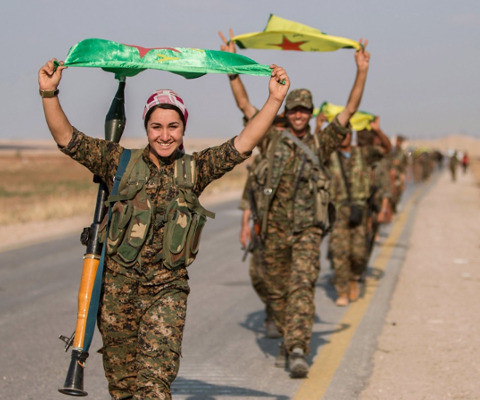 CR: They are not doing their best. Kurdish civilians are often killed in the bombardments. They happen by mistake, according to them, but we believe they want to maintain a kind of equilibrium between the jihadis and the Kurdish combatants. If the coalition wants to bomb a cigarette they do it. Sometimes we ask for targeted attacks and they say it’s not possible to proceed. Many jihadi fighters have weapons from the United States or Turkey. Yet, for months we haven’t received enough weapons. After the liberation of the areas controlled by the Syrian regime we reinforced the armed struggle but we are always more dependent on the support of the people than on arms.
CR: They are not doing their best. Kurdish civilians are often killed in the bombardments. They happen by mistake, according to them, but we believe they want to maintain a kind of equilibrium between the jihadis and the Kurdish combatants. If the coalition wants to bomb a cigarette they do it. Sometimes we ask for targeted attacks and they say it’s not possible to proceed. Many jihadi fighters have weapons from the United States or Turkey. Yet, for months we haven’t received enough weapons. After the liberation of the areas controlled by the Syrian regime we reinforced the armed struggle but we are always more dependent on the support of the people than on arms.
GA: You joined the YPJ in April 2013 and immediately entered into the professional units. How is the YPJ organized?
CR: First of all there are the local self-defence units (Haremi), then professional fighters and finally the resistance units. Men leave the self-defence units to join the YPG; the more educated women often enter directly into the professional combatants. We are like every other army; we depend on the ideology of Abdullah Öcalan. But we are not only an army. In meetings we spend time discussing and self-criticizing. We are a defensive army. In order to fight, women must know why and for what to fight. For this we begin with ideological and academic preparation, because every YPJ fighter must know her own self.
GA: So the YPJ is an army of feminists?
CR: We stand for a radical feminism. We depend on ourselves and benefit from the experience of everyone. Women at home protect the essentialness of women. Our fight is as women (no matter if Kurdish, Syrian or European) and for a nationality that identifies with democratic autonomy and is opposed to the concept of the state. During the fighting for Shingal, women went to save other women. At Til Temir YPJ fighters went to save Arab women. We went to save dozens of women captives in villages occupied by Isis.
GA: One of the themes you deal with in YPJ training is “love and death.”
CR: Love is essential, it’s part of everyone’s instinct. The philosophy of death is a way of living. In past times everyone knew death could come quickly; now it is different and this disconnects us from nature and does not allow us to accept the idea of death. Religion exploits death: if you’re a martyr you go to heaven. For us love and death are in contradiction: when we discuss it, it’s to search for a new military, communitarian and quotidian life. Women are not made to only have children. We want to reform and renew the community. We also talk a lot about sensuality.
GA: How is the YPJ received by male comrades?
CR: Some men don’t accept that their commander may be a woman. If in this context the women are soldiers, it’s not in vain. We have to fight against the concept that many male comrades have of women. When we talk about it with a YPG member, it often happens that he changes his mind and understands that the men’s units exist because the YPJ exists and not vice versa. We are not a military adornment. Many of our female fighters have been blown skywards by mines; they are commanders (the majority of them) of male units. There is plenty of autonomy regarding this. We have mixed battalions; in almost all battalions there are co-commanders. For instance, if Kurdish fighters do not commit ethnic cleansing after the capture of a city, it is mainly because our influence stops errors from being committed. •
Interviews translated by Sam Putinja, who wishes to extend a special thanks to Ali Behran Ozcelik.


